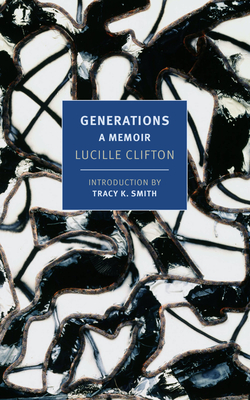Generations: A Memoir
Description of Generations: A Memoir
A moving family biography in which the poet traces her family history back through Jim Crow, the slave trade, and all the way to the women of the Dahomey people in West Africa.
Buffalo, New York. A father’s funeral. Memory.
In Generations, Lucille Clifton’s formidable poetic gift emerges in prose, giving us a memoir of stark and profound beauty. Her story focuses on the lives of the Sayles family: Caroline, “born among the Dahomey people in 1822,” who walked north from New Orleans to Virginia in 1830 when she was eight years old; Lucy, the first black woman to be hanged in Virginia; and Gene, born with a withered arm, the son of a carpetbagger and the author’s grandmother.
Clifton tells us about the life of an African American family through slavery and hard times and beyond, the death of her father and grandmother, but also all the life and love and triumph that came before and remains even now.
Generations is a powerful work of determination and affirmation. “I look at my husband,” Clifton writes, “and my children and I feel the Dahomey women gathering in my bones.”
Praise For Generations: A Memor:
“Impressive—honest, clear-eyed with a shapeliness natural to poets… . In addition to possessing the ease and intimacy of Clifton’s poetry, Generations speaks to, for, and from fictional and posthumous lives—Moses, Medgar Evers, Amazons, Bob Marley, Sleeping Beauty, etc. She is comfortable and knowing about the dead… . Lucille is another word for light, which is the soul of ‘enlightenment.’ And she knew it.” —Toni+Morrison
"Of great poets whose poems are kin to Clifton’s, I think of Emily Dickinson; to Dickinson’s intense compression Clifton adds explicit historical consciousness. And of Pablo Neruda: Clifton subtracts hyperbole from his elemental clarity.” —Elizabeth Alexander, The New Yorker


